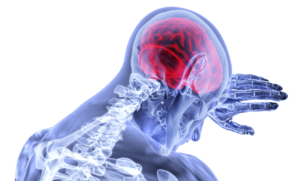When patients go to the doctor’s office following an auto accident, one of the most crucial things they need to do in order for the doctor to properly diagnose and treat them is accurately describe their pain. Pain can be hard to describe at times, especially if the patient is experiencing symptoms. Accurately describing the type and nature of the pain (i.e., throbbing, stabbing, etc.) to your physician is the best way to communicate with your doctor so that you can come up with the best treatment plan to recover from the injuries as efficiently as possible.
What Provokes the Pain?
As stated above, communicating with your doctor is key in diagnosing and treating the pain and symptoms that you are experiencing from a car accident. Other things you need to convey to your doctor are: What makes your pain feel better? What makes the pain worse? Are you able to still perform your activities of daily living such as cleaning and doing laundry? When do you feel the pain, is it constant or does it come and go? The first few weeks following an acute injury you may feel a change in the type and frequency of your pain and symptoms. You may want to keep a journal of how you are feeling and where your pain is located so that you have it for reference.
Describe Your Pain
Pain is pain, but there are different types that can mean different things. Is your pain dull, sharp, stabbing, burning, crushing, throbbing, shooting, twisting, nauseating or stretching? Is it more than one of these, or do you have different types in different places in your body? Tell your doctor. Make sure that you are communicating all of your symptoms and the location of them so that your doctor can come up with a treatment plan that is right for you.
Where is it Located?
Not only do you need to tell your doctor where your pain is located, but you should also explain if it radiates or seems to move around, as this can be an important piece of information that can help with diagnosis and treatment plans. Also, let your doctor know if your pain started somewhere specific but is now localized somewhere else.
How Severe is it?
Your doctor will likely ask you to rate your pain on a scale of 0 to 10. Zero is no pain at all, and 10 is the most pain you have ever felt. Also, mention if your pain interferes with activities and if the pain level intensity changes based on what you are doing. You should also put a number on your pain when it is at its worst, and tell your doctor.
Timing
Does your pain come and go throughout the day? Does it interrupt your sleep? Do you feel fine in the morning, but worse as the day goes on? Or does it hurt more when you first wake up, or more so after been sitting for a long period of time? Does it lead to further symptoms or additional pain?
Get to the Bottom of Your Pain
Make sure that you communicate with your doctor about any and all pain that you feel as a result of the accident so that your doctor can diagnose appropriately and order the necessary tests in order to get to the bottom of the issue. Since pain is subjective, unique to each patient and can not always be determined by tests, it’s crucial to paint an accurate picture of your pain for your doctor. This will not only help with diagnosis and treatment, but it will also help your healthcare team monitor your progress and determine whether your treatment is working by assessing your pain during future visits. Staying on track with your treatment regimen and following up regularly with your treating physician will help ensure that you recover well from your injuries. Call Florida Physical Medicine if you are experiencing pain following a car accident, our caring physicians and physical therapy team are here to help you on your journey to becoming pain-free.





